With eye toward teaching firearm safety, Mahar’s Junior ROTC adding air rifles
|
Published: 04-18-2024 5:00 PM
Modified: 04-25-2024 10:16 AM |
ORANGE — It appears Ralph C. Mahar Regional School’s Army Junior Reserve Officers’ Training Corps will participate in competitions with an air rifle aspect next year, though the program’s instructors are still waiting on air tanks, targets and other equipment from the U.S. Army Cadet Command ROTC.
Mahar’s program is just getting off the ground, having started the final week of August, and its cadets have not yet dabbled in air rifles. But retired Lt. Col. Glenn Scott expects that to soon change, though only students who demonstrate proficiency will be allowed to handle them.
Scott attended this month’s Mahar School Committee with some of his cadets and their families to discuss the issue, which had been put on the agenda for conversation. Some Committee members voiced concerns about the messaging that would come with allowing cadets to carry air rifles, though no vote was needed to grant or deny permission to the program.
“We didn’t take a vote, but we’re not stopping it from going ahead,” School Committee Chair Peter Cross said in an interview. “I believe they’re going to use them.”
Though School Committee member Carla Halpern acknowledged students are allowed to participate in dangerous activities like football, she said she worries about potential risks. She mentioned she is uncomfortable with the idea of students who may have been socially stunted by the COVID-19 pandemic having assess to firearms.
“I question whether having something with weapons, when somebody is trying to figure things out socially, is a good mix,” she said. “I’m not drawing a conclusion, but I am asking a question. I’m putting that out there.”
Halpern also pushed back on associating guns with confidence building and noted the military tends to focus its recruitment efforts on low-income areas like Orange.
“I think there are a lot of other ways to develop confidence,” she said.
Article continues after...
Yesterday's Most Read Articles
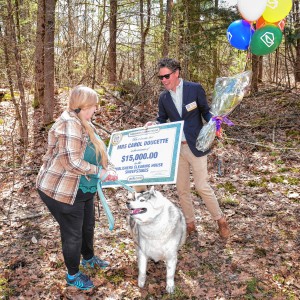 Carol Doucette of Royalston receives $15,000 from Publishers Clearing House
Carol Doucette of Royalston receives $15,000 from Publishers Clearing House
 Athol town-wide cleanup deemed ‘a huge success’ by organizers
Athol town-wide cleanup deemed ‘a huge success’ by organizers
 Byron Coley: Shores Ness for Select Board
Byron Coley: Shores Ness for Select Board
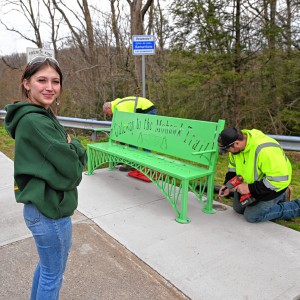 Franklin Tech student welds ‘artistic’ bench for French King Bridge
Franklin Tech student welds ‘artistic’ bench for French King Bridge
 Partnership hopes to address Lake Ellis stormwater runoff
Partnership hopes to address Lake Ellis stormwater runoff
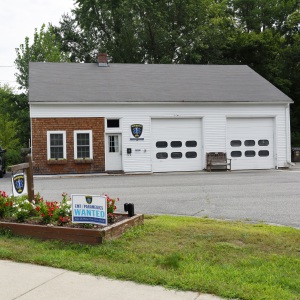 State documents show Northfield EMS chief’s paramedic license suspended over failure to transport infant
State documents show Northfield EMS chief’s paramedic license suspended over failure to transport infant
Scott noted that firearms are optional for participants and the main objective is to teach firearm safety.
One of the cadets present with Scott was 15-year-old sophomore William Hammond, who said the Junior ROTC program has done wonders for him.
“I personally enjoy it because I get to participate in things that other classes may not offer,” he said. “For Thursdays and Fridays, we do physical training and that can allow us to go to competitions, [to] states with other schools, allowing us to bring home trophies and boost our morale and bring back some extra confidence to do better.”
William wears on his uniform a ribbon he earned as part of the drill team.
His father, Stephen Hammond, said he understands the points some School Committee members are making, but the Junior ROTC is not a formal military recruitment machine and there is no service obligation associated with it.
“I’ll be perfectly honest with you — I don’t want him joining the Army. I’d rather him do something else with his life,” he said of his son. “If he wants to join the Army, that’s up to him. If this gives him a little bit of insight into what’s going on, how to act, how to react, how to be something, by all means go ahead.”
Mahar Principal Scott Hemlin first applied to the U.S. Department of the Army for the Junior ROTC 15 years ago, when he was the dean of students. He got a call in August 2022 that the school had gotten approved. He noted the department can finance only so many programs due to budget constraints. The Ralph C. Mahar Regional School District pays 50% of the instructors’ salaries and the Army pays the other half.
Hemlin explained the Army vets instructor candidates — who must be retired and have completed a certain training program — and gave him a list of potential candidates. He said Scott and Master Sgt. Martin Mulvihill are doing an outstanding job with the 32 students involved.
As for the air rifle issue, Hemlin said the North Quabbin region has a proud outdoor culture and the Junior ROTC program teaches firearm safety and etiquette.
“We’ve had our Fish and Game Club since the ’50s, so our kids are avid outdoorsmen,” he said. “So it’s not all that out of the norm, so to speak. But it’s a different program. What’s different about it is we’ll ... have the air rifles here on site and they’ll shoot either in the gym or outside, where the Fish and Game Club, they don’t bring any of those things inside. That’s all independent, down at the Orange Gun Club and all that.”
Reach Domenic Poli at: dpoli@recorder.com or 413-930-4120.

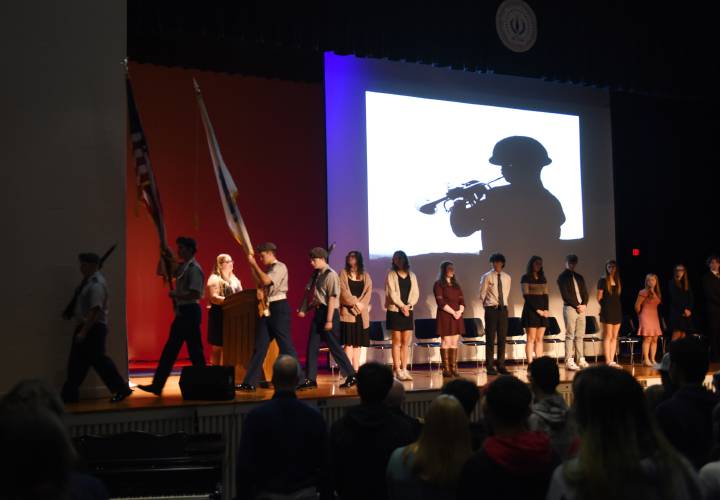
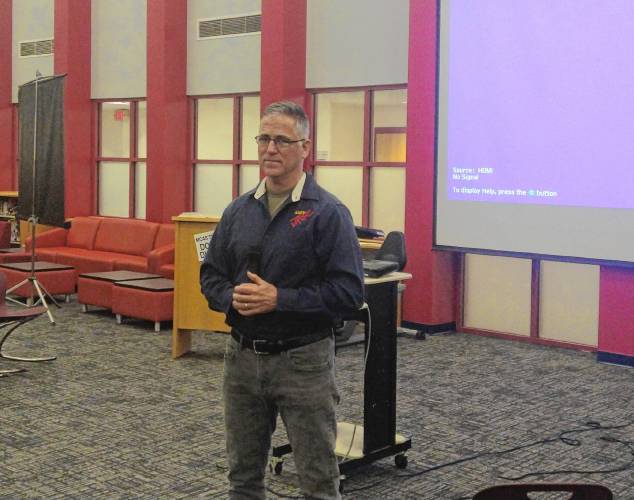
 DA to announce breakthrough in 1989 unsolved homicide
DA to announce breakthrough in 1989 unsolved homicide Royalston Selectboard backs Town Meeting warrant
Royalston Selectboard backs Town Meeting warrant Earl Sweat seeks seat on Phillipston Selectboard
Earl Sweat seeks seat on Phillipston Selectboard Lobby push aims to propel doggie day care standards
Lobby push aims to propel doggie day care standards